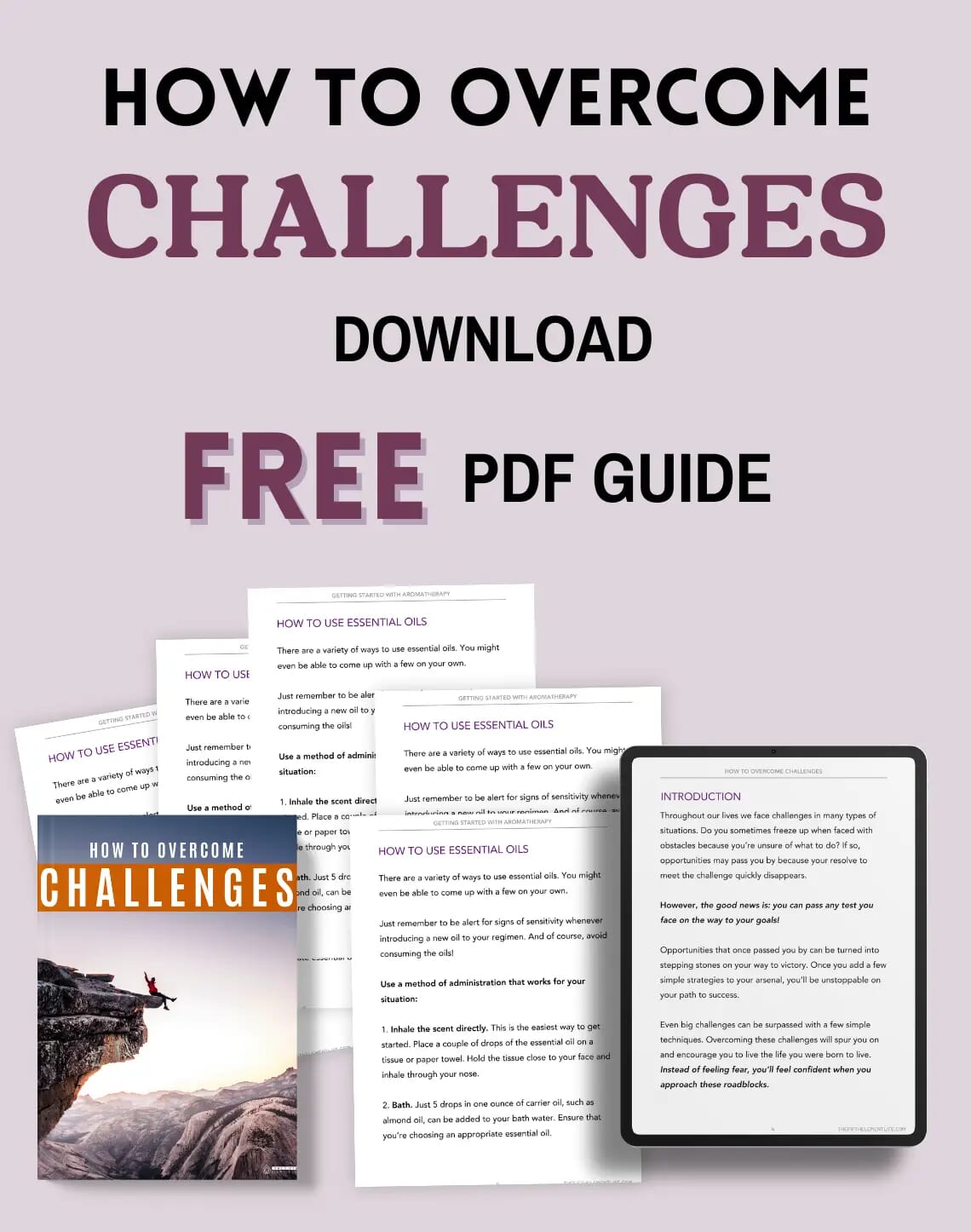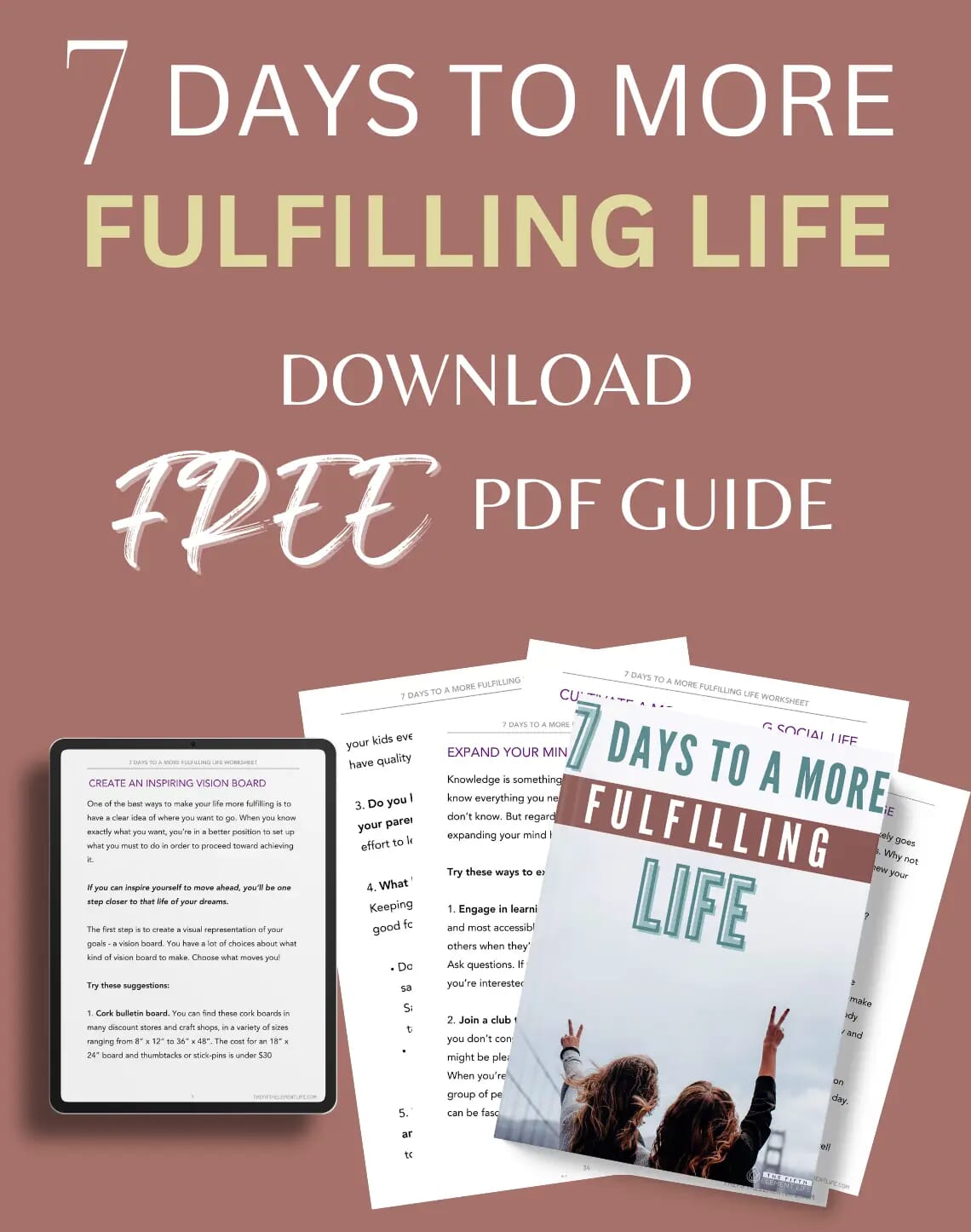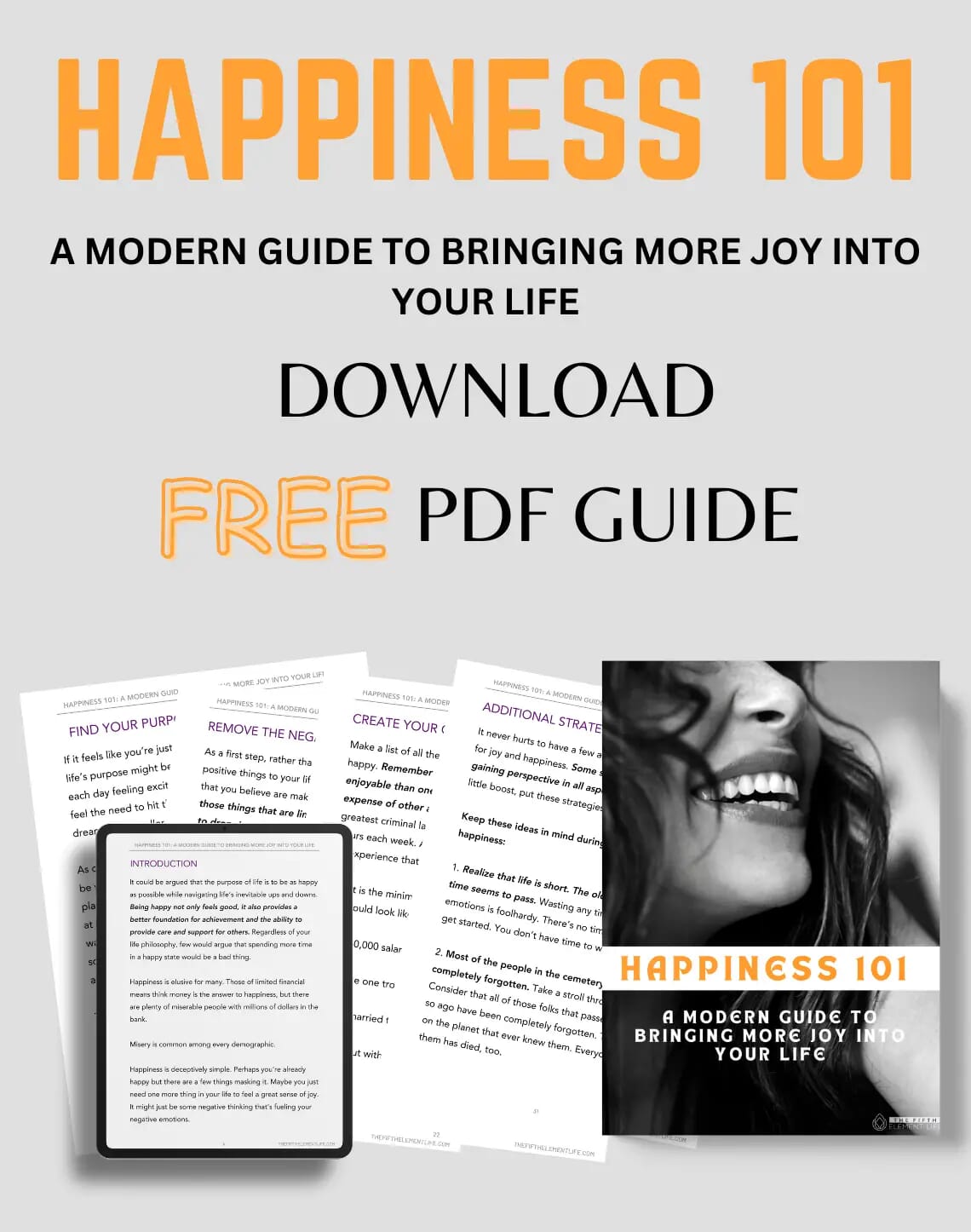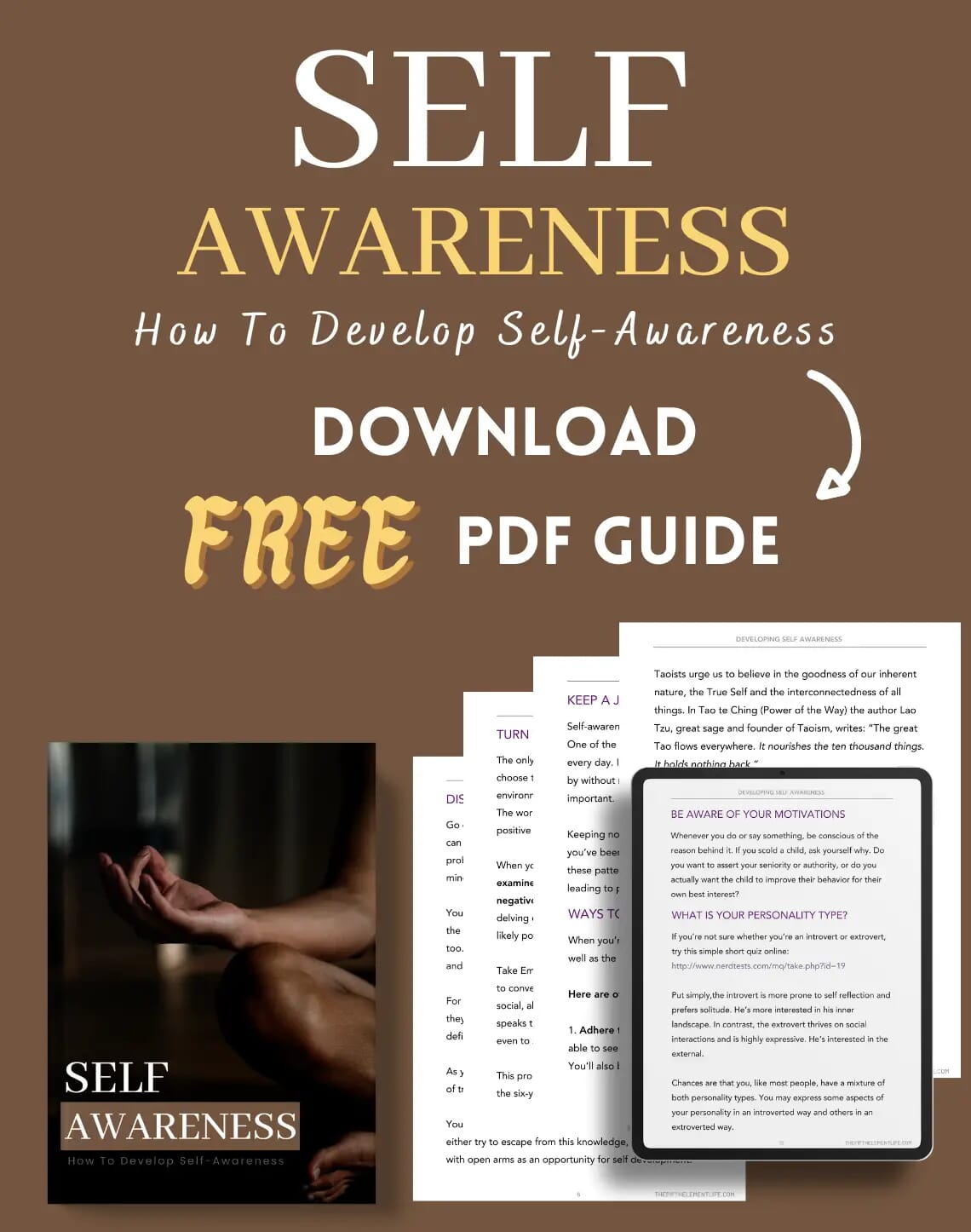Last Updated on April 17, 2024
In this chaotic and demanding world we inhabit, anxiety often feels like an unwelcome companion, tugging at the corners of our minds.Track and manage your anxiety with an effective anxiety journal. Promote self-care, mindfulness, and personal growth.
I know this struggle all too well.
The weight of worries, the grip of unease, and the relentless stream of thoughts can make it challenging to find inner peace.
But amidst the chaos, I discovered a glimmer of hope—a lifeline called “The Daily Anxiety Journal.”
It became my go-to on a transformative journey of self-discovery, healing, and resilience.
In this article, I invite you to join me on this path towards managing anxiety and finding a sense of calm within.
Together, we will explore the intricate facets of anxiety, its impact on our lives, and the crucial steps we can take to regain control of our mental well-being.
We’ll begin by delving into what anxiety truly looks like, unraveling its tangled web and shedding light on its effects.
Next, we’ll explore how anxiety can negatively impact various aspects of our existence.
From relationships strained by worry to the toll anxiety took on my physical and emotional well-being, I learned firsthand the importance of taking control of anxiety.
But why should we take control? I’ll share the profound impact that embracing our ability to influence anxiety can have on our overall well-being.
Together, we’ll empower ourselves to reclaim our power, shift our perspective, and embrace the path to healing.
Next, I’ll guide you through a range of practical techniques and approaches that helped alleviate my anxiety.
From mindfulness exercises that anchored me in the present moment to self-care practices that nurtured my soul, these strategies became my toolkit for navigating the challenges anxiety presented.
At the heart of our journey lies “The Daily Anxiety Journal,” a sanctuary for self-expression, reflection, and growth.
I’ll reveal the intimate benefits of journaling and how it became a transformative practice, offering solace and invaluable insights on my path to inner peace.
So, take a deep breath and step into this emotional and empowering journey with me.
RELATED: 16 Inspiring Journal Ideas For Creativity, Reflection, & Self-Care FREE DOWNLOAD
What Is Anxiety?
Anxiety, simply put, is our body’s response to perceived threats or stressors.
It’s a natural part of being human, but sometimes it can become overwhelming.
Let’s explore some key aspects of anxiety to help us make sense of it:
Emotional Rollercoaster
Anxiety often brings a mix of emotions like worry, fear, and apprehension. It can make us feel on edge, like something bad is about to happen. Understanding these emotional aspects helps us recognize when anxiety is at play.
Thoughts in Overdrive
Anxiety loves to play tricks on our minds. It can make our thoughts race and dwell on worst-case scenarios. We may find ourselves stuck in a loop of negative thinking, unable to break free. Recognizing these thought patterns is crucial in managing anxiety effectively.
Physical Sensations
Anxiety doesn’t just stay in our heads—it affects our bodies too. It can cause physical sensations like a racing heart, sweaty palms, or a tightness in the chest. By paying attention to these bodily cues, we become more aware of how anxiety manifests physically.
Empowering Ourselves
While anxiety can be challenging, understanding its true nature empowers us to take control. By recognizing anxiety’s patterns and triggers, we can develop strategies to manage it. Seeking support, practicing self-care, and cultivating resilience are key steps in overcoming anxiety’s grip.
Recognizing Anxiety: How to Know If You Have Anxiety
Now that we have explored the true nature of anxiety, let’s dive deeper into understanding if you might be experiencing it.
Recognizing the signs and symptoms of anxiety is a crucial step towards gaining clarity about your mental well-being.
It’s not always easy to know exactly what you might be suffering from, so in this section, we will explore common indicators that can help you determine if you have anxiety.
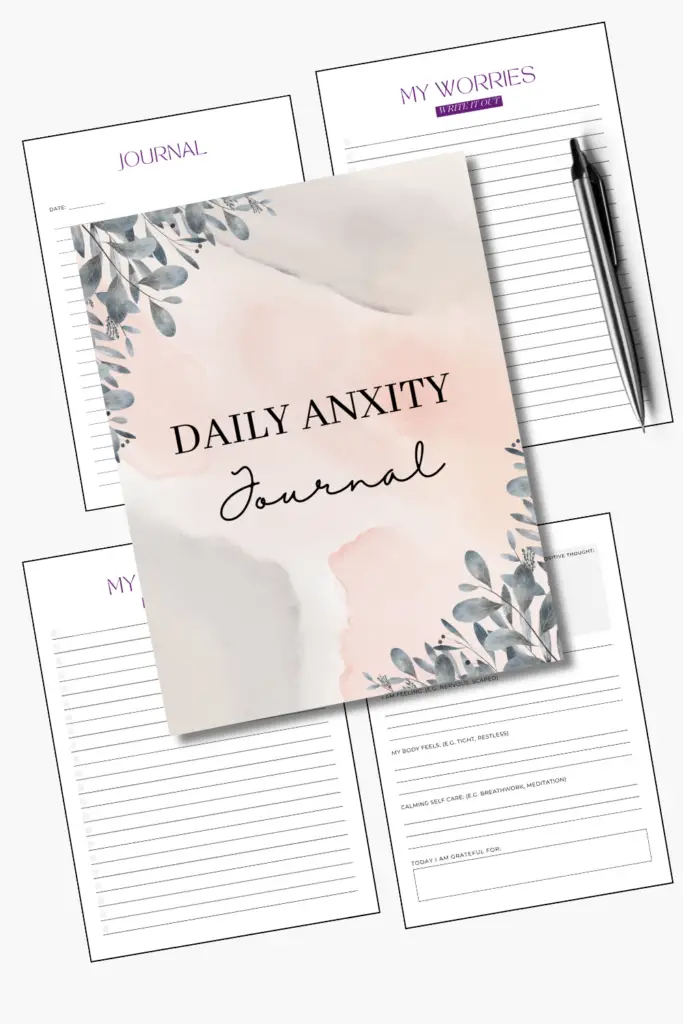
Persistent Worry
One of the hallmarks of anxiety is persistent and excessive worry. If you find yourself constantly caught in a cycle of negative thoughts, always anticipating the worst-case scenarios, and struggling to control your worrying, it may be a sign of anxiety.
Physical Symptoms
Anxiety can manifest in physical ways too. Pay attention to any recurring physical discomfort, such as a racing heart, shortness of breath, muscle tension, headaches, stomachaches, or fatigue. These symptoms often accompany anxious feelings.
Overwhelming Fear or Panic
Intense fear or panic attacks can be indicative of an anxiety disorder. If you experience sudden and overwhelming episodes of fear accompanied by physical sensations like trembling, sweating, chest pain, and a sense of impending doom, it’s essential to seek professional help for proper diagnosis and support.
Impacts on Daily Life
Anxiety can significantly affect your daily life and functioning. It may interfere with your ability to concentrate, make decisions, perform well in school or work, or engage in social activities. If anxiety starts hindering your overall well-being and quality of life, it’s important to address it.
Duration and Frequency
Anxiety is more than temporary stress or worry. It involves persistent feelings of unease that last for an extended period, typically six months or longer. If you frequently experience anxiety-related symptoms and they persist over time, it’s worth exploring further to determine if you have an anxiety disorder.
The Impact of Anxiety: How It Can Negatively Affect Your Life
Anxiety is more than just an occasional bout of worry—it can have a profound impact on various aspects of your life.
For me, it not only negatively affected my own wellbeing, it also impacted the relationships I had with others.
Understanding how anxiety negatively affects you is essential in seeking appropriate support and developing strategies to manage its impact effectively.
Here are some common ways anxiety can interfere with your daily life.

Interference with Mental Well-being
Anxiety can take a toll on your mental well-being, leaving you feeling overwhelmed, exhausted, and emotionally drained. It can lead to persistent feelings of stress, irritability, and difficulty concentrating or making decisions. Anxiety may also contribute to self-doubt, low self-esteem, and a negative outlook on life.
Impaired Relationships
Anxiety can strain relationships with family, friends, and romantic partners. The constant worry and fear can make it challenging to fully engage in social interactions or maintain open communication. Over time, this may lead to feelings of isolation, misunderstandings, and a sense of detachment from your loved ones.
Disrupted Work or Academic Performance
Anxiety can significantly impact your ability to perform well in academic or professional settings. It can interfere with concentration, creativity, and productivity. Procrastination, perfectionism, and self-doubt often accompany anxiety and can hinder your progress and achievement.
Physical Health Consequences
Persistent anxiety can take a toll on your physical health. It may contribute to sleep disturbances, such as insomnia or restless sleep, leading to fatigue and decreased energy levels. Additionally, chronic anxiety may weaken the immune system and increase the risk of developing conditions like cardiovascular problems, digestive disorders, or chronic pain.
Limited Exploration and Growth
Anxiety can create barriers that limit your willingness to explore new experiences and take risks. It may prevent you from stepping out of your comfort zone and pursuing personal growth opportunities. This can hinder your ability to discover new passions, develop skills, and reach your full potential.
RELATED: Nurturing Your Inner Light: The Power Of Self-Care Journaling FREE DOWNLOAD
Taking Control: Why You Should Empower Yourself to Manage Anxiety
Anxiety always seemed like an unwelcome intruder, disrupting my peace of mind and hindering my ability to not only thrive, but to simply function normally in society.
However, by taking control of my anxiety, I was able to reclaim my life and unlock a world of possibilities.
In this section, I want to share with you some compelling reasons why it’s essential to empower yourself and actively manage your anxiety.
Enhanced Well-being
Managing anxiety allows you to prioritize your mental and emotional well-being. By gaining control over anxious thoughts and feelings, you can experience a greater sense of calm, inner peace, and overall happiness. Taking charge of your anxiety opens the door to improved well-being in all areas of your life.
Improved Relationships
Managing anxiety positively impacts your relationships with others. As you develop effective coping strategies, you become better equipped to communicate your needs, express yourself authentically, and engage in meaningful connections. Building healthier relationships becomes possible when anxiety no longer dominates your interactions.
Unleashing Your Potential
Anxiety has a way of holding you back, preventing you from reaching your full potential. By actively managing your anxiety, you unlock the power to break free from self-imposed limitations. You gain the confidence to pursue your goals, embrace new opportunities, and explore uncharted territories. Empowering yourself allows you to tap into your true potential.
Increased Productivity
Anxiety can derail your productivity and hinder your ability to focus and accomplish tasks. Taking control of your anxiety enables you to develop effective strategies to manage stress, stay organized, and maintain concentration. By harnessing your energy and focus, you can boost your productivity and achieve greater success in your personal and professional endeavors.
Enhanced Resilience
Managing anxiety builds resilience within you. As you navigate and overcome anxiety’s challenges, you develop a sense of inner strength and resourcefulness. This resilience not only helps you face anxiety head-on but also equips you to navigate life’s uncertainties with greater ease and adaptability.
Improved Physical Health
Reducing anxiety has a positive impact on your physical health. By managing stress levels, you can improve sleep quality, enhance immune function, and reduce the risk of stress-related health issues. Taking control of your anxiety contributes to a healthier body and a more balanced overall well-being.
By taking charge of your anxiety, you reclaim the power to shape your life, relationships, and overall happiness.
With the right tools, support, and mindset, you can transform anxiety into a catalyst for personal growth and a stepping stone towards a more fulfilling life.
Empowering Strategies: Ways to Help Manage Your Anxiety
I know all too well that managing anxiety is a journey that requires active engagement and a commitment to your well-being.
Fortunately, there are various strategies and techniques that can empower you to effectively cope with anxiety.
In this section, I want to share with you some of the techniques that best helped me to overcome my anxiety.
Deep Breathing and Relaxation Techniques
Deep breathing exercises, such as diaphragmatic breathing or box breathing, can help activate your body’s relaxation response. Practice these techniques regularly to reduce anxiety symptoms and promote a sense of calmness. Additionally, incorporating relaxation techniques like progressive muscle relaxation or guided imagery can further aid in stress reduction.
Regular Exercise and Physical Activity
Engaging in regular physical exercise has been proven to be beneficial for managing anxiety. Physical activity releases endorphins, which are natural mood boosters, and helps reduce stress. Find activities you enjoy, such as walking, jogging, yoga, or dancing, and make them a part of your routine to help alleviate anxiety.
Mindfulness and Meditation
Practicing mindfulness and meditation can help cultivate present-moment awareness and reduce anxiety. Set aside dedicated time each day to focus on the present, whether through guided meditations, mindful breathing exercises, or mindful activities like journaling or walking in nature. These practices can enhance your ability to manage anxious thoughts and promote overall well-being.
Healthy Lifestyle Habits
Adopting a healthy lifestyle can have a positive impact on anxiety management. Ensure you are getting adequate sleep, maintaining a balanced diet, limiting caffeine and alcohol intake, and establishing a consistent daily routine. Taking care of your physical health supports your mental well-being and resilience in the face of anxiety.
Seek Support from Loved One
Don’t hesitate to reach out to trusted friends, family members, or support groups when you’re feeling overwhelmed. Sharing your feelings and concerns with others can provide emotional support and help you gain different perspectives. Knowing that you’re not alone in your struggles can be comforting and empowering.
Journaling
Writing down your thoughts and feelings in a journal can be a powerful tool in managing anxiety. Expressing yourself through writing allows you to release emotions, gain clarity, and track patterns and triggers. Use your journal to reflect on your anxious thoughts, challenge negative thinking patterns, and celebrate moments of gratitude and personal growth.
RELATED: 6 Creative Journal Ideas For Self-Discovery & Personal Growth FREE DOWNLOAD
Introducing “The Daily Anxiety Journal”: Your Companion for Anxiety Management
Now that we’ve explored various strategies to help manage anxiety, I want to introduce you to a powerful tool that can further support your journey: “The Daily Anxiety Journal.”
This online journal is designed to provide guidance, structure, and encouragement as you navigate through your anxiety.
With its unique sections and interactive features, it offers a comprehensive approach to anxiety management.
It has helped me immensely and I’m confident it will also help you.
Let’s take a closer look at what this journal has to offer.
“My Worries”
In the “My Worries” section, you can freely express and document your anxious thoughts, fears, and concerns. This space serves as a cathartic outlet for releasing pent-up emotions and gaining clarity about the specific issues that trigger your anxiety. By acknowledging and confronting your worries, you can begin to understand their underlying causes and work towards finding effective solutions.
“Today’s Positive Thought”
The “Today’s Positive Thought” section is designed to shift your focus towards positivity and gratitude. Each day, you’ll find a thought-provoking prompt or affirmation that encourages you to reflect on the positive aspects of your life. By cultivating a mindset of gratitude and optimism, you can counterbalance anxious thoughts and foster a more positive outlook.
“I Feel Anxious About”
In the “I Feel Anxious About” section, you can explore and identify the specific situations, triggers, or events that provoke your anxiety. By recognizing and articulating these anxieties, you gain greater self-awareness and insight into the patterns and factors that contribute to your anxious feelings. This understanding forms the foundation for developing targeted coping strategies.
“I Am Feeling”
The “I Am Feeling” section provides a space to acknowledge and validate your emotions. By recognizing and accepting your feelings without judgment, you can develop a healthier relationship with your emotions and cultivate self-compassion. This section encourages you to explore the nuanced range of emotions that accompany anxiety, fostering emotional intelligence and resilience.
“My Body Feels”
Anxiety often manifests physically, and the “My Body Feels” section allows you to pay attention to your bodily sensations and their connection to your anxiety. By tracking physical symptoms such as muscle tension, headaches, or rapid heartbeat, you can gain insights into the mind-body connection. This section promotes self-care and encourages you to address any physical manifestations of anxiety.
“Calming Self-Care”
The “Calming Self-Care” section provides a dedicated space for practicing self-care activities that soothe and relax your mind and body. From guided meditations and breathing exercises to indulging in creative outlets or engaging in hobbies, this section offers a range of self-care ideas to help alleviate anxiety and foster a sense of well-being.
“Today I Am Grateful For”
The “Today I Am Grateful For” section encourages you to focus on gratitude and appreciation. By acknowledging the positive aspects of your life, big or small, you shift your perspective and cultivate a sense of abundance. This practice promotes emotional well-being and counters the negative bias often associated with anxiety.
The Power of Journaling: Benefits for Anxiety Management
In my experience, journaling is a powerful practice that has had some of the most profound benefits for managing my anxiety.
By putting pen to paper and engaging in self-reflection, you can tap into a therapeutic tool that empowers you to navigate through anxious moments.
In this section, we will explore the specific benefits that journaling offers for anxiety management.
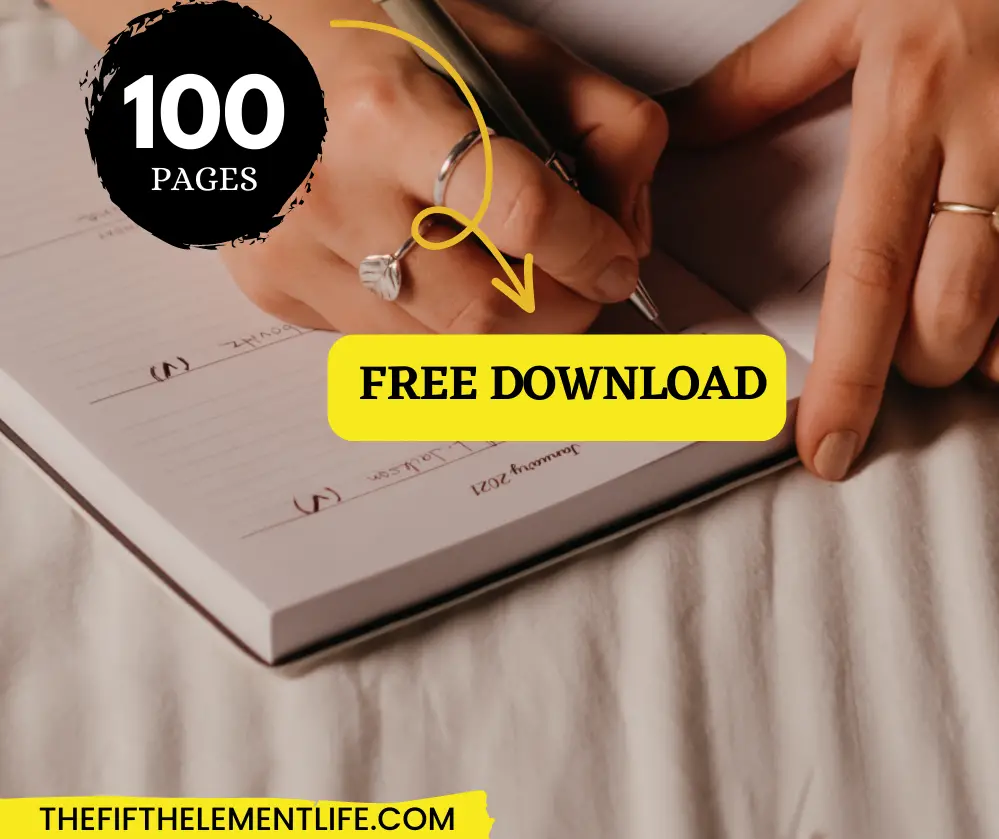
Emotional Expression and Release
One of the primary benefits of journaling for anxiety is its ability to provide a safe space for emotional expression and release. Writing allows you to pour out your thoughts, fears, and worries onto the pages, giving them a tangible form outside of your mind. This process can provide a sense of relief, as you release pent-up emotions and gain a clearer understanding of your feelings.
Increased Self-Awareness
Journaling promotes self-awareness by encouraging you to reflect on your thoughts, emotions, and behaviors related to anxiety. As you write, you gain insights into your triggers, patterns, and reactions, which can help you identify the underlying causes of your anxiety. This self-awareness forms the basis for developing effective coping strategies and making positive changes in your life.
Challenging Negative Thinking Patterns
Anxiety often involves distorted or negative thinking patterns. Through journaling, you can identify and challenge these patterns. By writing down your anxious thoughts and examining them objectively, you can evaluate their accuracy and replace them with more rational, balanced perspectives. Journaling provides an opportunity to reframe negative thoughts and cultivate a more positive mindset.
Stress Reduction and Relaxation
Engaging in journaling can be a calming and therapeutic practice in itself. As you write, you engage in a focused and introspective activity that allows you to temporarily step away from the stressors of daily life. Journaling can provide a sense of release and relaxation, helping to reduce anxiety levels and promote a state of calmness.
Problem-Solving and Goal Setting
Writing in a journal enables you to explore potential solutions to the challenges and worries you face. By documenting your anxieties, you can break them down into manageable parts and brainstorm practical strategies to address them. Journaling also allows you to set goals, track your progress, and celebrate achievements, fostering a sense of empowerment and motivation.
Tracking Progress and Patterns
Keeping a journal provides a tangible record of your journey through anxiety management. By reviewing past entries, you can track your progress, identify patterns, and gain a deeper understanding of what works for you. This insight allows you to refine your coping strategies, recognize triggers, and make adjustments to your self-care routines as needed.
Boosting Self-Confidence and Resilience
Consistent journaling can boost your self-confidence and resilience in the face of anxiety. As you document your experiences, thoughts, and emotions, you witness your growth and progress over time. Journaling serves as a reminder of your strengths, achievements, and the resilience you’ve demonstrated in overcoming challenging situations.
Next Steps: Nurturing Your Journey to Anxiety Management
Now that we’ve explored various strategies, introduced “The Daily Anxiety Journal,” and discussed the benefits of journaling, let’s discuss the next steps in your journey towards managing anxiety.
Nurturing your well-being and seeking additional support can enhance your progress and help you navigate through challenges.
Here are some actionable steps to consider:
Embrace Consistent Journaling
Make a commitment to incorporate journaling into your daily routine. Set aside dedicated time each day to write in your journal, allowing yourself to express your thoughts, reflect on your experiences, and track your progress. Consistency is key to reaping the full benefits of this powerful practice.
Explore Professional Support
Consider seeking professional support from a therapist or counselor who specializes in anxiety. They can provide guidance, tools, and personalized strategies to help you manage anxiety more effectively. Therapy offers a safe space for deeper exploration of your anxieties and can empower you with tailored coping mechanisms.
Engage in Self-Care Practices
Prioritize self-care as an integral part of your anxiety management journey. Engage in activities that nourish your mind, body, and spirit. This may include exercise, mindfulness practices, spending time in nature, pursuing hobbies, or engaging in relaxation techniques. Self-care replenishes your energy, promotes resilience, and helps counterbalance anxiety.
Seek Support Networks
Reach out to support networks such as online communities, support groups, or forums where individuals with similar experiences gather. Connecting with others who understand what you’re going through can provide validation, encouragement, and a sense of belonging. Sharing insights and coping strategies can be invaluable on your journey.
Educate Yourself
Continue to educate yourself about anxiety and its management. Read books, articles, or reputable online resources that provide insights, practical tips, and guidance. Understanding the nature of anxiety and staying informed about evidence-based strategies can empower you with knowledge and equip you to make informed decisions.
Practice Mindfulness and Relaxation Techniques
Integrate mindfulness and relaxation techniques into your daily life. Engage in practices such as meditation, deep breathing exercises, or guided imagery to cultivate a calm and present state of mind. These techniques can help you manage anxiety in the moment and build resilience over time.
Celebrate Progress and Practice Self-Compassion
Acknowledge and celebrate your progress, no matter how small. Recognize the efforts you’re making towards managing anxiety and celebrate the milestones along the way. Practice self-compassion by being kind and patient with yourself during challenging moments. Remember that managing anxiety is a journey, and it’s okay to have ups and downs.
Inspiring Quotes
To end the article, I want to present a collection of insightful quotes that offer encouragement and inspiration for overcoming anxiety and that have always provided me with a sense of peace and comfort.
These quotes serve as reminders of the strength and resilience within each of us as we navigate the challenges of anxiety.

- Courage is not the absence of fear, but rather the judgment that something else is more important than fear.” – Ambrose Redmoon
- “You don’t have to control your thoughts. You just have to stop letting them control you.” – Dan Millman
- “Anxiety does not empty tomorrow of its sorrows but only empties today of its strengths.” – Charles Spurgeon
- “The greatest weapon against stress is our ability to choose one thought over another.” – William James
- “Worrying does not take away tomorrow’s troubles, it takes away today’s peace.” – Unknown
- “Believe in yourself and all that you are. Know that there is something inside you that is greater than any obstacle.” – Christian D. Larson
- “Anxiety may feel like a wave, but you have the power to learn how to surf.” – Unknown
- “The only way out is through.” – Robert Frost
- “Strength grows in the moments when you think you can’t go on, but you keep going anyway.” – Unknown
- “Remember, you have been criticizing yourself for years and it hasn’t worked. Try approving of yourself and see what happens.” – Louise L. Hay
Frequently Asked Questions
How can journaling help with anxiety?
Journaling offers several benefits for anxiety management.
It provides a space for emotional expression, increases self-awareness, helps challenge negative thinking patterns, reduces stress, and promotes relaxation.
Journaling allows you to track progress, explore solutions, and foster self-compassion, creating a comprehensive tool for managing anxiety effectively.
What if I don’t know what to write in my journal?
If you feel unsure about what to write, start with a simple reflection on your day or explore any emotions that arise in the present moment.
You can also use prompts provided in “The Daily Anxiety Journal” or search for journaling prompts online.
Remember, there are no right or wrong answers—let your thoughts flow naturally.
How often should I journal for anxiety management?
The frequency of journaling is flexible and depends on your preferences and schedule.
Aim to journal at least a few times a week, but ideally, strive for daily practice.
Consistency is key to reap the full benefits of journaling. Find a rhythm that works for you and adjust as needed.
Can journaling replace professional help for anxiety?
While journaling can be a valuable tool for anxiety management, it may not replace professional help entirely.
If your anxiety significantly impacts your daily life or you feel overwhelmed, it is essential to seek support from a therapist or counselor.
They can provide personalized guidance and assist you in developing a comprehensive treatment plan.
Is there a specific way to journal for anxiety, or can I do it my own way?
There is no right or wrong way to journal for anxiety.
You can customize your journaling practice based on your needs and preferences.
Some people prefer free-flowing writing, while others may find guided prompts or structured exercises more helpful.
Experiment with different approaches and find what resonates with you.
Can journaling cure my anxiety?
Journaling is not a cure for anxiety, but it can be a valuable tool in managing and reducing its impact.
It complements other strategies and treatments for anxiety, such as therapy, medication, and self-care practices.
Journaling provides a means of self-reflection, emotional expression, and developing coping skills to navigate through anxiety more effectively.
Continue Reading👉:Foster Your Inner Power Through Habits With The “Heal The Fear” Online Journal FREE DOWNLOAD
- 49 Unique Self-Care Kit Ideas For Your Well-Being - February 14, 2024
- 85 Exciting And Encouraging Quotes About Trying New Things In Life To Inspire That First Step - February 14, 2024
- 125 Inspiring You Are Amazing Quotes For Yourself And The Special People In Your Life - February 14, 2024

